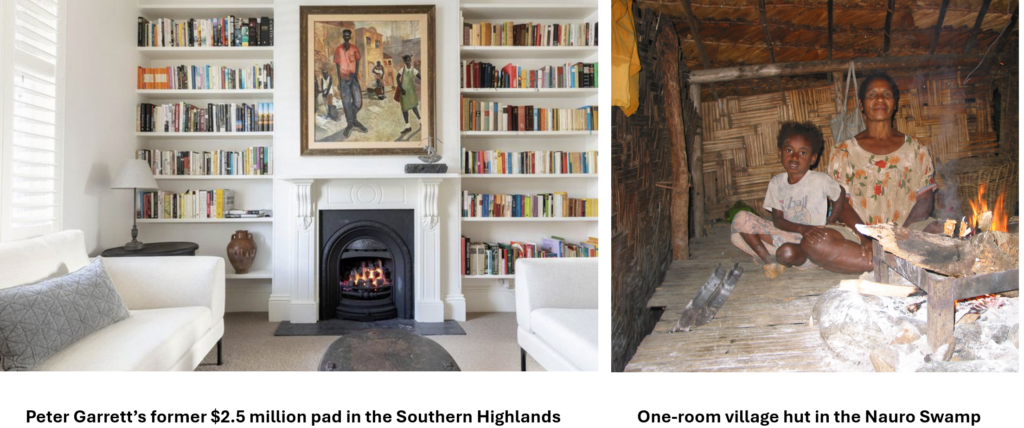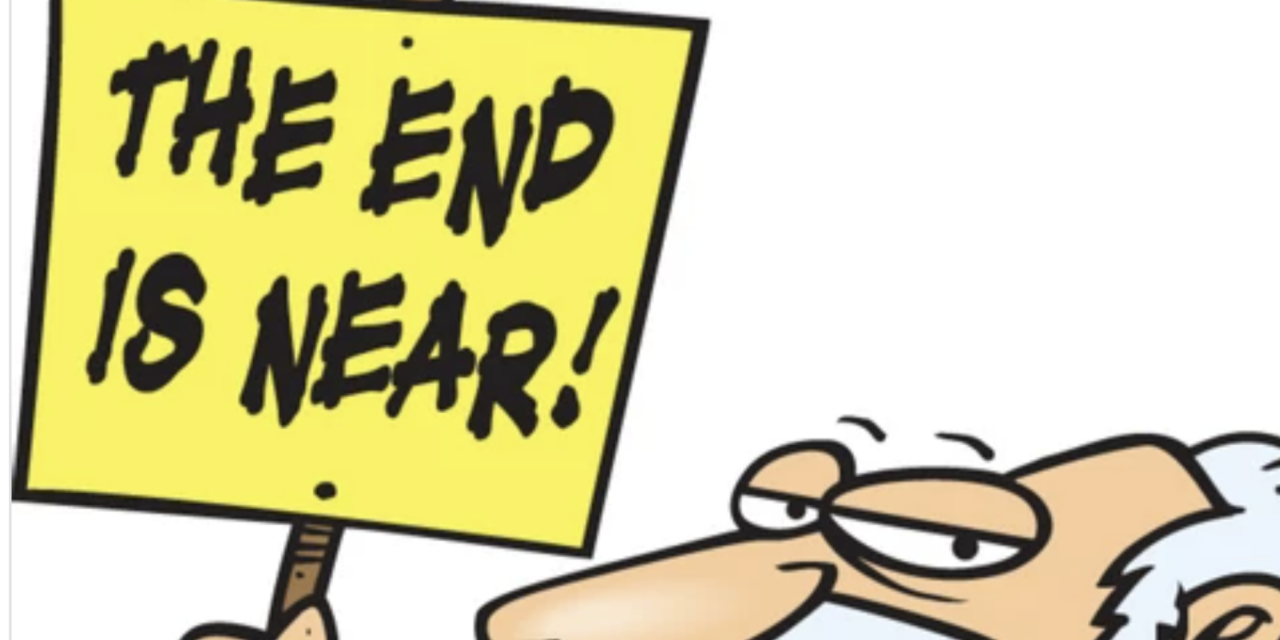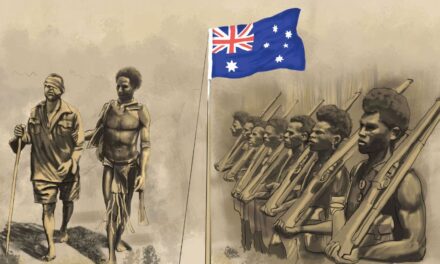This content has been archived. It may no longer be relevant
‘Midnight Oil’ lead singer, Peter Garrett, is a well meaning environmentalist – but he can well afford to be with a net worth of around $10 million (K25 million).
Not so the woman sitting in her small hut in the Nauro swamp area alongside her young son with a net worth of a few kilos of ‘kai kai‘ (sweet potato), some taro, corn and an assortment of local fruit!
Garrett, a former Minister for Environment under the Rudd Labor government, didn’t waste any time committing to his extreme environment agenda on indigenous communities in the Cape York Peninsula area, and along the Kokoda Trail after he was appointed in 2007.
It’s worth noting that Cape York is 3.460 km north of the ruling class in the Canberra bubble – PNG is a further 150 km further away so the elite are well insulated from the social desolation of the indigenous aid-dependent communities they create.

The Australian newspaper (2nd January 2025) inadvertently ‘belled the cat‘ by exposing Canberra’s environment agenda for the Kokoda Trail when it reported on the pushback from indigenous landowners to have Cape York listed as a World Heritage area.
It’s now clear that from the time Minister Garret signed a ‘Joint Understanding’ with his PNG counterpart, former Environment Minister, Benny Allen MP, in 2008 his objective was to lock up the area to prevent any form of economic activity from mining, logging, or tourism via a World Heritage listing.
His advisors conveniently ignored the findings of an earlier 2006 Rapid Assessment and Prioritisation and Priortisation of Protected Area Management (RAPPAM) report for PNG compiled by the Department of Environment and Conservation, the Forestry Authority, the Research and Conservation Foundation, the Nature Conservancy, and the Village Development Trust which concluded:
‘Many of the areas with high socio-economic importance are facing a relatively low degree of threat (Kokoda, Wiad, Pirung).
‘Areas like Lihir, Tonda, and Bagiai are exceptions to this rule and hence require more efforts to protect them from the variety of threats they are currently facing.’
Their findings were verfied by Dr Peter Hitchcock who revealed that the Kokoda Trail did not meet the criteria for a World Heritage listing in 2015 – further details can be viewed via the following link:
Proposed Kokoda Track Management Authority
Dr. Hitchcock’s findings caused Canberra to revaluate their strategy by using the cover of Covid to develop an alternate aid-funded agency – a Kokoda Track Management Authority, which would see the Kokoda Trail permanently managed as an environment park by the Conservation Environment Protection Authority (CEPA).
Their proposal wll lead to the continued demise of pilgrimage tourism which has already fallen by 42% since Canberra took control of the Trail in 2009. A detailed analysis of the proposed Bill can be viewed on this link:
If the Canberra inspired Bill is approved by National Executive Council, PNG will become the only country in the World to allow its most popular tourism destination to be managed as a foreign aid-funded environment bureaucracy rather than as a tourism enterprise for the economic benefit of traditional landowner communities.
Cape York
According to the Australian newspaper Garrett’s environment officials used a similar strategy to con traditional landowners on Cape York Peninsula as they have used to con Port Moresby based landowners and key officials in PNG.
Mr. Richie Ah Mat, chief executive of the Cape York Land Council – the regional body representing traditional owners – said he had “never supported a World Heritage listing” because it would ‘block job-creating projects in declared areas’.
Mr. Ah Mat went on to say:
‘Once you put World Heritage over Cape York, our people’s economic opportunities are gone out the window.’
This also applies to traditional Kokoda communities who will be consigned to a permanent aid-dependent subsistence lifestyle if the Canberra inspired Kokioda Track Management Authority Act is approved by NEC.
According to the report the recently appointed Queensland Minister for Environment, Andrew Powell MP, revealed:
‘The feedback we received on Cape York was that the consultation was not enough, not inclusive and not all positive from the communities.’
This is similar to a review of the PNG Kokoda Track Authority (KTA) conducted by Canberra funded consultants who failed to trek across the Kokoda Trail and neglected to conduct any village-based workshop. Their review was essentially a ‘desktop study’ with predetermined outcomes as detailed on this following link:
The CEO of the Cape York Land Council, Richie Ah Mat complained that the Government’s submission for World Heritage ‘was run by the government, it wasn’t about our people’.
His concerns were mirrored by the CEO of the PNG Kokoda Track Authority, James Enage, who complained that the he and his village based communities were excluded from the process of developing a Master Plan for the Kokoda Trail by Canberra funded consultants. The plan was certainly not about the development of a sustainable pilgrimage tourism industry for ‘his people‘!
A detailed review of Canberra’s Master Plan can be viewed on this link:
Comments from the wider public in response to the Australian newspaper article are instructive as they refer to concerns over the loss of sovereignty once World Heritage areas are ceded to foreign environment agencies:
- ‘World Heritage listing means handing sovereignty to a cabal of foreigners who then tell you what you can and can’t do.’
- ‘It would remove any possibility of the people of Cape York generating their own income and they would remain on welfare which the remainder of Queensland (and Australia) would have to provide.
- ‘Australia should withdraw from all World Heritage, just an excuse for unelected foreigners to intrude into our affairs. We can manage things well enough without them.
As PNG enters its 50th anniversary of Independence it might be timely to reflect on why some MPs and Governors continue to tolerate a form of neo-colonial rule for their most popular tourism destination at the expense of their traditional landowner communities.
Further Reading:
- Papua New Guinea – A place of pilgrimage
- Review of Canberr’s Second Joint Understanding incl comparitive outcomes between 2014 and 2020
- Kokoda Track Authority Strategic Plan – Fail!
- Kokoda Initiative Annual Report-A betrayal of our Kokoda legacy
- Kokoda Blockade – A catalyst for change






The Canberra Bubble should not be left with the responsibility of granting World Heritage listing to Cape York, far less than granting a similar sentence to the Kokoda Trail. Try looking further than outside your window.
Charlie, it will be difficult to change bureaucracy, but persistence wins the day… I’m available when things start again. Regards, Reg Yates.